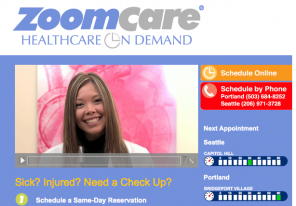Before moving to Seattle in 1999, business travel from the east coast took me to Tacoma several times. I fell in love with East & West Café, especially in its more hole-in-the-wall, pre-expansion, “little house” years, and I never felt the need to travel north of Seatac airport for my overnight dining.
Now that I actually live in Seattle, though, it’s hard to get me to Tacoma. I know that doesn’t work in reverse, as Tacomans tend to take trips up to Seattle to eat and do more. But when I ask for restaurant recommendations in Tacoma, all I hear is “Wow… the South Sound is tough.”
Still, a restaurant called Marrow held promise. Since its opening in 2011, I’ve admired the concept of the menu. The “marrow” side, in the words of the restaurant, focuses on “protein based dishes incorporating often overlooked meats.” That’s right up my alley, especially if organ meats are involved. Meanwhile, the “arrow” side showcases “elevated vegetarian dining.” I can live with that.
A recent business trip to Tacoma gave me a chance to finally visit the restaurant. As I hoped, the “marrow” part of the menu flashed some tempting dishes: alligator chowder, Cajun-grilled frog legs, and, yes, roasted bone marrow. But then something on the chalkboard of specials caught my eye:
3 Course Tasting Menu
Salmon and scallop tartare, wonton, dill cream cheese, fried capers
Braised goat cakes, fried eggs, red wine demi
Petite duck breast, pommes Anna, asparagus, cranberry mostardo [sic]
All that for… $25. What a deal! And with special appeal for those who’d rather forego dessert for another savory course. I had to try it.
The first plate (pictured above) was perplexing. I wasn’t sure if the wontons were meant to be eaten as cones (apparently not, as most of the fish fell out upon lifting), and there was a lot of cream cheese with dill looming on the plate. (I’d later hear someone at the next table ask, “What am I supposed to do with all this cream cheese?”) It was a nice quantity of salmon and scallop pieces, but the flavor was a little briny (not from the capers) and not fresh tasting.
The braised goat cakes were better, but heavy as a middle course. I appreciated the slightly gamey flavor, as well as the little fried eggs atop the cakes. Finally, the duck breast was a little overcooked (the prominent piece in the photo was the pinkest), though the potatoes (Anna-style means layers of slices cooked in lots of butter) were a nice accompaniment.
Given the great quantity of food, it’s hard to complain about a $25 tasting menu. Truth is, the meal wasn’t bad. But it wasn’t compelling, and despite the website’s comparison to “what could be found in the trendier neighborhoods of San Francisco, Portland, or Chicago,” the food is not quite at that level. What’s good for the South Sound falls short of what’s available in Seattle, let alone the other three cities cited.
Hungry for more? Connect with us on Facebook, Twitter, and Instagram for more delicious dishing.
